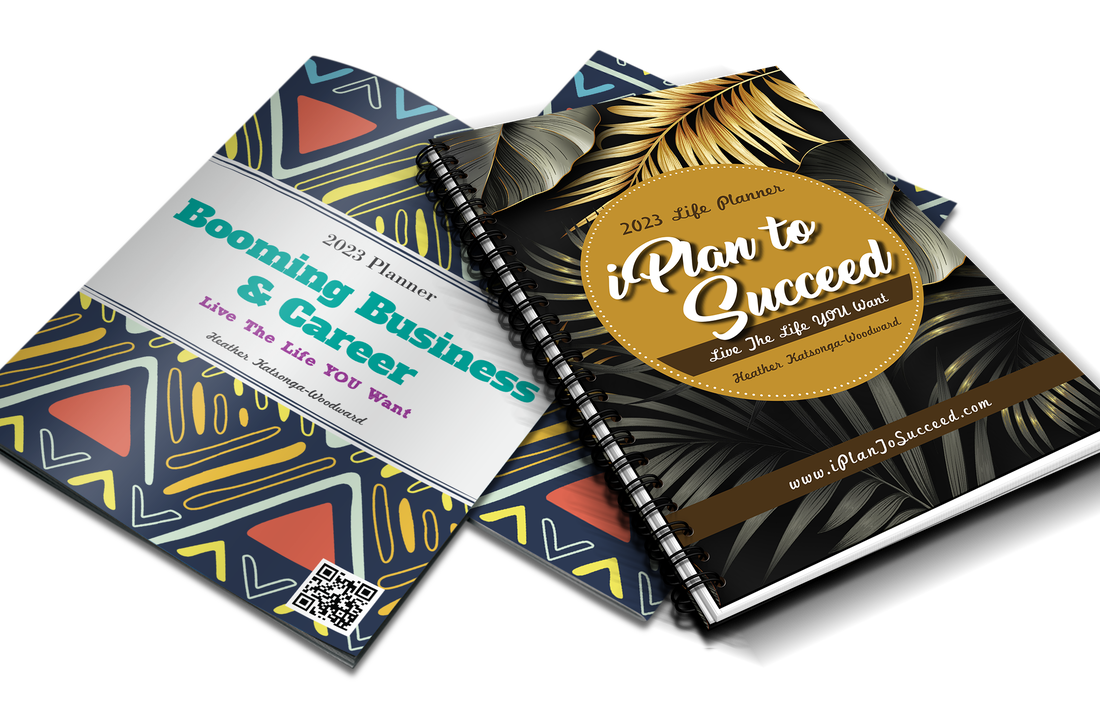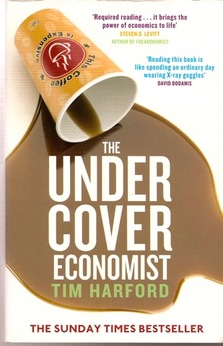 4/5 It's only when I started reading this book that I realized I’ve already read it! Anyhow, I thought I hadn’t finished it the first time around so I read on. This book is similar to Freakonomics in that it looks at every day situations and explores them in a way a layman would not normally have thought about the subject. It’s a good book but not as good as Freakonomics, that said, if you like to read non-Fiction that educates without boring you to death, then this is one you’ll enjoy. Example scenarios explored in the book include: Why coffee joints that sell coffee at daylight robbery prices aren’t actually making much money. What negative externalities are, for example pollution, and how they should be solved vs. how they are currently solved. What positive externalities are and how you are benefit from them without knowing it. What happens when one side in a transaction knows a lot more than the other side, for example when you're trying to buy or sell a second hand car (Akerlof's lemons). This is known as asymmetric information. What would happen if insurers sold insurance without a deductible (also known as an excess in Britain)? - this is the moral hazard problem. Personally, I find these kinds of problems fascinating that's why I did my degree in Economics. If you don’t have an Economics degree but want knowledge on some basic economic fundamentals so you can look really smart amongst your friends, grab your copy on amazon.com or amazon.co.uk. As an business owner I think this is a must-read because when you see what you think is a great opportunity to make money you might actually be wrong. For instance, most laymen would assume that coffee shops in train stations are raking it in because they don't have any competition. In reality, it's probably the landlord of the shops that's enjoying most of that cashflow (The Undercover Economist explains why) so what business opportunity should you be exploring? Opening a coffee shop or owning prime real estate?
0 Comments
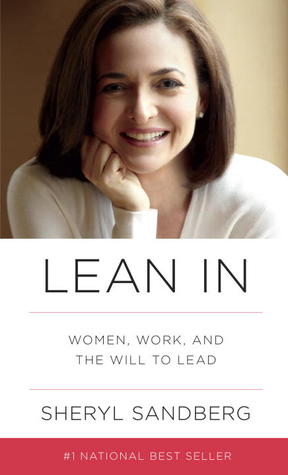 5*/5 This is one book that needed to be written and the right person wrote it. Most people do not become billionaires from employment, Sheryl Sandberg is one of those that did. The chick is minted. If it wasn’t for the fact that her husband collapsed and died at such a young age I would totally want to be her! Such a shame. I actually did not expect to like Sheryl Sandberg or her book because she isn’t really an entrepreneur, she’s always had her pay cheque come from a corporate so I don’t see her as having taken any massive risks with her life but I LOVED her. In fact, I changed my view on her re. not taking risks with her career because I learnt more about her career progression through this book. Long story short, she worked as a management consultant out of university, then had a stint in Government working for Larry Summers from 1996 to 2001 when he was US Treasury Secretary then she decided to go into Technology. She took on a role at Google when Google was a fledgling little company. Her friends laughed at her and thought she was crazy to leave a secure employment path. This is always the case when you do something different but it paid off. She rode Google’s success with them and when she was considering leaving Google for The Washington Post, Mark Zuckerberg asked her to join Facebook as COO instead. It’s a Cinderella employment story. Anyhow, the book is mostly not about her but offers a wide-ranging volume of data and literature on women and the workplace. I really enjoyed the stats and the research collated in the book and I totally value the fact that she is also a mum. Some of my favourite things: 1. Did you know that women hate successful women? Yes, for real. She talks of a study in which a go-getting person is described. In one case the name Howard is used and in another version they keep everything the same but call the person Heidi. After people were asked to read the study and assess the personality of the protagonist, significantly more people gave Hilary negative character traits such as being “aggressive”, “bossy” and other undesirable traits. Indeed, studies show that as men become more successful people like them more but as women become more successful people like them less including other women. Studies also show that traits like “ambition” are seen as positive traits in a man but negative in woman. 2. Sheryl argues that who you marry is possibly the most important career decision you ever make. Your partner will either pull your career up or tear it down. I could not agree more. I love the example she gave of a couple she knows who both have high pressure careers. In their relationship the husband was more naturally suited to preparing school lunches etc. for their kids so his colleagues were surprised when his wife calls while he is out of town to ask what he puts into the lunch box and he recounts whatever it was – sandwich, fruit, juice and cookie, for instance. Then a couple of months later when he is out of town again he gets the same call and again lists the same stuff – sandwich, fruit, juice and cookie. Some people just have knack for certain things and when you take away society’s assigned gender roles from the equation, it can be either the man or the woman. The reason I love this is because it fights common stereotypes about what roles different people should play in a relationship. My husband does a lot of roles that society traditionally expects me to play because he does them better than I do and vice versa. His eye for picking cool clothes, for example, means our son generally looks better when he dresses him up rather than when I do so he’ll frequently dress him before he goes to work. And my keen eye for financial deals means I’m better suited to negotiating new mortgage deals, insurance deals and building our property portfolio Indeed, I know a few friends that fail to progress with their dream because their partner does not support them. 3. Men who do more housework get more sex! Yes, it appears this is the case. Frankly, I think it makes sense. There is nothing sexier than a man that does housework J. 4. Don’t plan your life around having to be a mother or a wife Sheryl Sandberg says lots of women take on smaller roles and refuse promotion opportunities because they are planning on having a baby or getting married. She says go for it with all you have got and take on every opportunity you would ignoring that stuff and essentially cross that bridge when you actually get to it. She mentions on intern who asks for a meeting with her to asks questions about family vs. career planning when she didn’t even have a boyfriend. Laugh along with me, please. 5.The Gender Discount problem She talks about how women get punished for things in the workplace that men do not. Women are presumed to be communal and helpful so if they don’t act to fulfil this they pay a penalty. For example, imagine there is heavy workload at the office, if a male colleague offers to help it’s consider an imposition so he gets compensated with more favourable employment evaluations, e.g. salary increases and bonuses and there are no real consequences if he doesn’t offer to help. A female colleague will get no kudos for helping but will look bad (negative rewards) if she does not offer to help. She goes on to say that men negotiate more for better pay etc. than women but this could be because men are expected to and women can in fact pay a penalty for advocating for themselves due to this gender discount problem. The solution: a woman has to negotiate for the herd. You need to look like you’re not promoting just yourself but everybody or somebody else. She mentions a group of women at Merrill Lynch that met up for lunch weekly and after that lunch would go back to their desks and actly brag about the good work one of their women colleagues was doing. The result: they all ended up getting promoted faster – go figure! 6. You too have biases and hold stereotypes Ultimately, she says we are all biased and hold certain stereotypes whether we like it or not and not acknowledging that we do does more harm than good because we develop a “bias blind spot” in which we fail to recognise and correct for our own biases and prejudices. She sites a study in which people were asked to look at profiles and choose a police chief. Those that declared themselves to be "not biased" were actually found to be much more biased in favour of men than those that admitted they did hold a bias/stereotype. There is so much more I enjoyed about this book but I can't recount it all. A fascinating read available on amazon.com and amazon.co.uk. 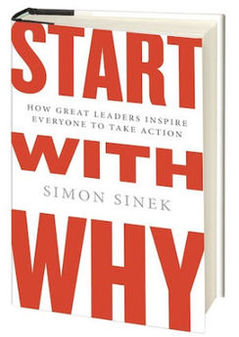 Rating: 3.9 / 5 A good listen. Achievement vs. Success Apparently every year, 40 to 50 business owners sit and talk about “stuff” at a Gathering of Titans on MIT’s campus. They don’t necessarily talk shop but about things pertaining to the bigger picture of life and business. Simon Sinek attended one of these talks. When asked, “How many of you have achieved your financial goals?” 80% of hands went up. However, when asked , “How many of you feelsuccessful?” Far fewer hands went up. Many of these great leaders knew what they did and how they did it but they no longer knewwhy they were doing it. Simon Sinek defines:
Achievement occurs when you pursue and reach something and a feeling of success comes when you are clear about why you wanted to attain that thing in the first place. I like this story because I could relate to it. I learnt very early in my career as an investment banker that financial achievements frequently didn’t lead to a feel of overall success in life. On Corporate Ethos In stating the general values of a good Southwest Airlines CEO, I loved the quote from Howard Putnam who said, “I’m not paying 5 bucks for a coffee; and what the heck is a Frappuccino anyway?” when Sinek suggested they take a break for a Starbucks. It isn’t that he was cheap but he simply didn’t attach much value to a hot a drink and no matter how wealthy he was he wasn’t going to pay for one, he was “an every man”. I respect that. On Money Money is never a cause, it’s always a result. I loved that quote too because I elaborate on a similar principle in the “Success” section of The Money Spot™ program. 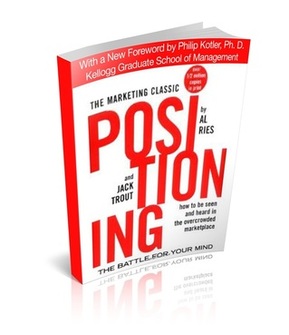 Rating: 3.75/5 This was an interesting read but not very memorable without notes. The only note I made was: Out of mind, out of business. I guess this is enough because all I have to ask myself every day is, what has my business done today to stay at the top of customers’ and fans’ minds. Overall, the idea and concept of “positioning” suggested that a product has to be positioned in the market so that, to a customer’s mind, you are somewhere along a hierarchy: e.g. the budgetbrand, the premium brand, the cool brand that you want people to see you ‘supporting’, the sexybrand, the glamorous brand etc. Position yourself as being the FIRST & BEST at something. No one remembers the 2nd place product. There is a great slideshow on SlideShare.net by Sameer Mathur elaborating the concept of positioning. What I love about the positioning concept is that it too emphasizes that we have moved beyond buying products especially in the developed world. It describes the 1950s as the “product era” – an era when you focused entirely on product features and benefits and the current time as the era for strategizing and focusing on “position”. The book had a range of interesting case studies too that I enjoyed listening to. 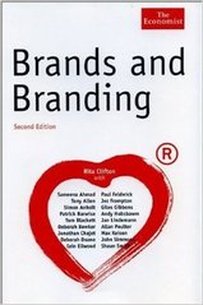 Rating: 3.5 / 5 For the most part I found this book a little disappointing because it was overly focused on big businesses (fortune 500) as well as what I would call traditional models of creating a brand. The book was a compilation of thoughts from a range of authors. My notes included: Reasons People Buy Products:
If you don’t have a brand you have no way to create mass consumer loyalty. There are low levels of trust in large companies but high levels of trust in specific brands. Customer spend, customer retention and customer willingness to recommend a product are correlated with the strength of the relationship between the customer and the brand. Relationship Strength with a customer grows if you:
Ultimately, consistency leads to trust. I did finish the book so it was worth finishing but to be honest I didn’t learn as much from it as I had hoped. 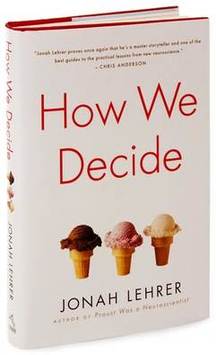 Rating: 3/5 I read this book so long ago that I don’t recall what it was about. As it happens, in early 2013 the book was pulled from bookshelves because Jonah Lehrer had made up some of the content – naughty boy! I still have access to it because I bought the audiobook in February 2013 just before it was pulled. The overall premise of the book was to provide a foundation for making good decisions. For instance: · Sometimes a complex decision is solved best by going on instinct · A simple problem may require more analysis What happens is that most people spend too much time analyzing seemingly complex issues when that level of analysis is not necessarily needed and too little time analyzing theseemingly simple. However, as a disgraced author who’s been found to be making things up in his book he’s lost a lot of authority and credibility for future books. Tut tut. 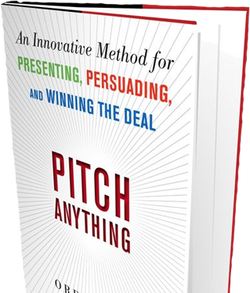 Rating: 5/5 A very enjoyable read - this book was really about getting a better deal for yourself without being a "salesperson". I like Oren's idea of frames and I like his description of how Walmart's frame super collider will beta beat the best alpha! Oren's tips to become a frame supermaster - and by the way you will have to by the book to get what all this means: 1. Look out for beta traps that seek to control you. 2. Practice beta trap avoidance. 3. Identify and label frames that come at you:
5. Enact small acts of defiance with a soft touch so as not to ignite a cro response. 6. Don't force frame control, it should be fun. 7. Work with frame masters to get better Remember that local star power is "situational status" and is hence transferable to anyone that seizes that moment. Global power is fixed. A little more detail on Oren Klaff's Pitch Anything framework: 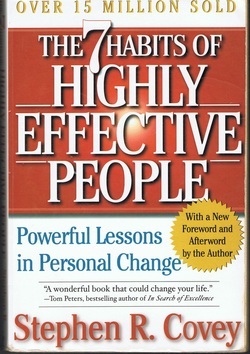 Rating: 5/5 A thoroughly good read. Timeless. Practical. The 7 Habits according to Mr Covey are: INDEPENDENCE 1. Be proactive - things don't just happen 2. Begin with the end in mind 3. Put first things first INTERDEPENDENCE 4. Think win-win 5. Seek first to understand then to be understood 6. Synergize CONTINUOUS IMPROVEMENT 7. Sharpen the saw I liked the phrase, "The person who doesn't read is no better off than the person who can't read" I also liked the story about the squirrel, duck, eagle & rabbit. They were all forced to take part in a relay that involved running, swimming, climbing up a tree and climbing down one. In the case of the duck, it swam fabulously but was very below average in other subjects so the teacher forced it to stop swimming and focus on the subjects it wasn't good at. All the running caused the duck to develop calluses leading to a decline in its swimming ability but a slight improvement elsewhere. I was inspired by what I thought was the moral of the story: society/school forces mediocrity; focus on what you are good at if you want to be truly amazing! Sadly, Mr Covey died in 2012, I really would have loved to meet him. 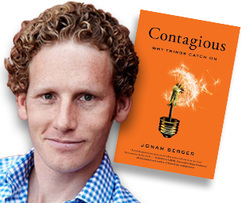 Rating: 4/5 An interesting read. I purchased this book after seeing hisYouTube interview with Marie Forleo. Jonah Berger talks about how things that go viral abide by some or all the below STEPPS. He's a fairly young guy, early 30s (32/33), but is doing extremely well. Being a lecturer doesn't hurt either as I assume he got his adoring students to review his book on Amazon thereby achieving over 200 reviews in a very short time-frame. I wish him every success. The STEPPS Social currency: we share things that make us look good Triggers: we share things because a memory has been triggered at an appropriate time Emotion: we share things that make us laugh, feel happy or very concerned Public: things that are built to show are built to grow, e.g. Movember Practical value: we share news that can be used Stories: we share good stories. I totally feel inspired by Jonah Berger's CV (read it and weep!), the guy must be working around the clock! 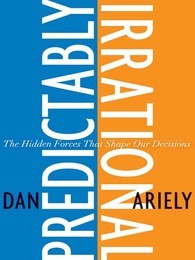 Rating: 5/5 I read this book after it was directly recommended to me by Roger Dooley. This was one of three books he recommended to me after I asked him for any book as good as his Brainfluence. The first two books were rather boring but this book completely met with my expectations. It's well researched and gives great insight into human behaviour. Some useful tips included:
|
Heather Katsonga-WoodwardTime allowing, I love to read. If I read anything interesting, I will blog about it here. 2019 Life and Career PlannerCategories
All
Archives
January 2019
|
Heather Katsonga-Woodward, a massive personal finance fanatic.
** All views expressed are my own and not those of any employer, past or present. ** Please get professional advice before re-arranging your personal finances.






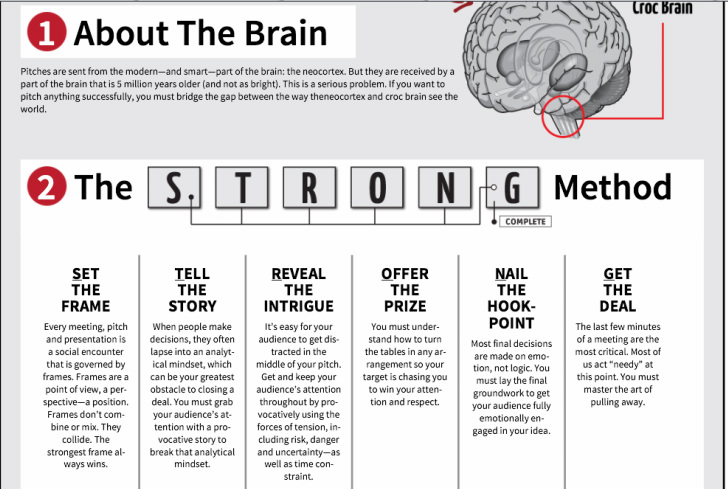




 RSS Feed
RSS Feed
